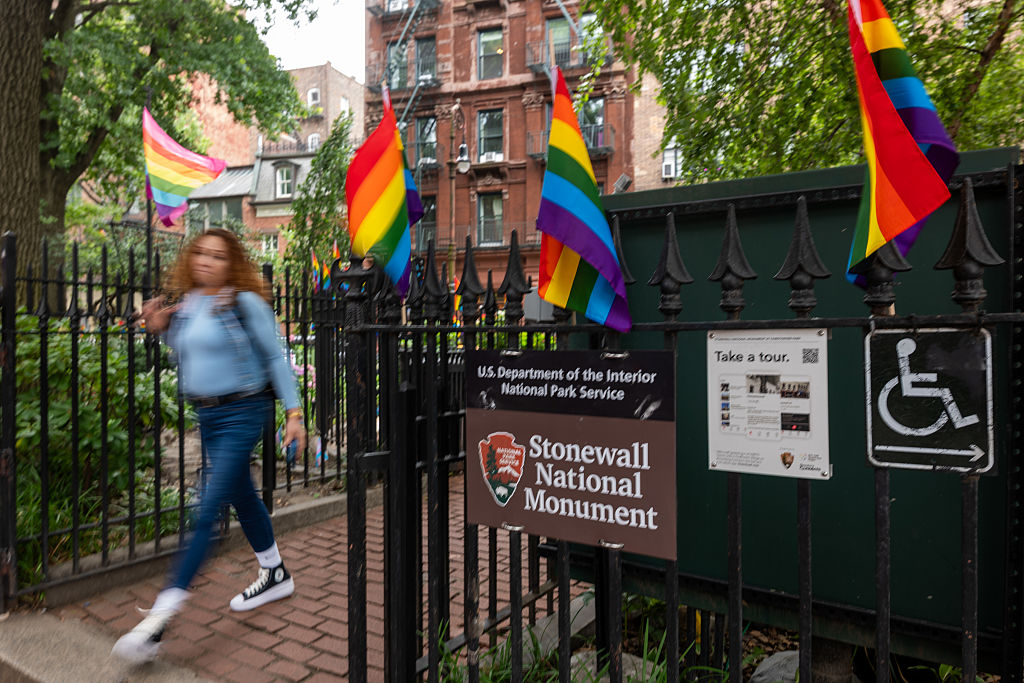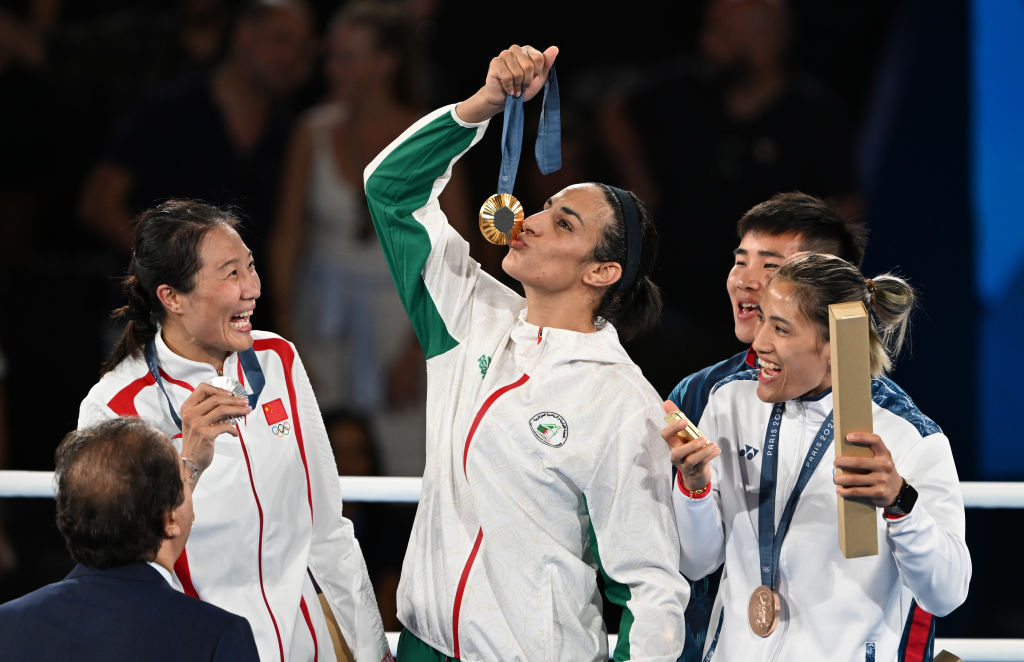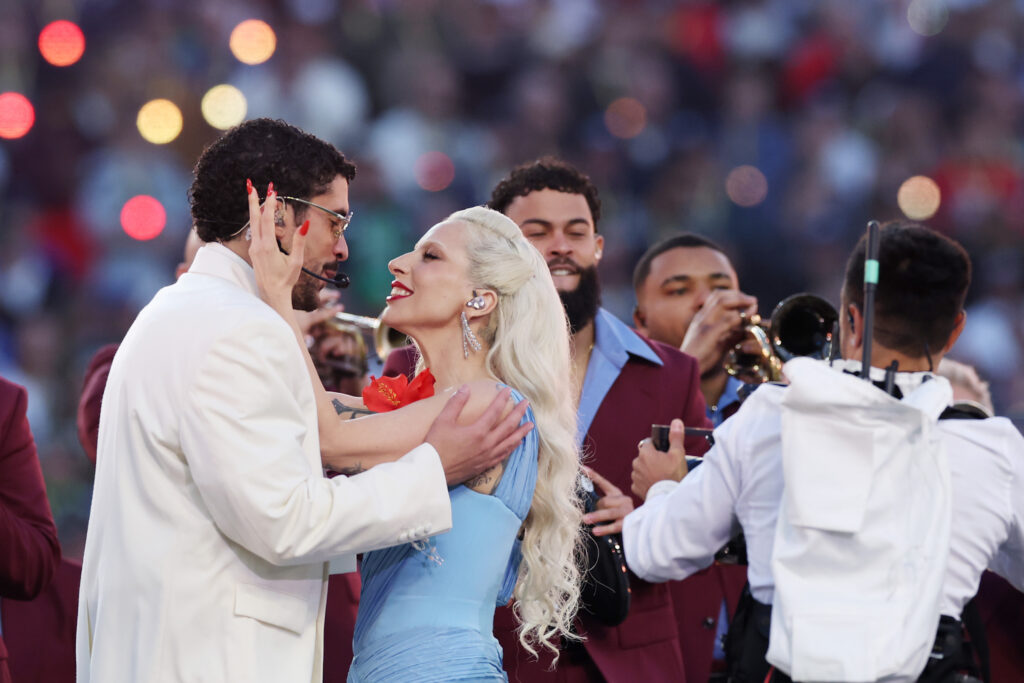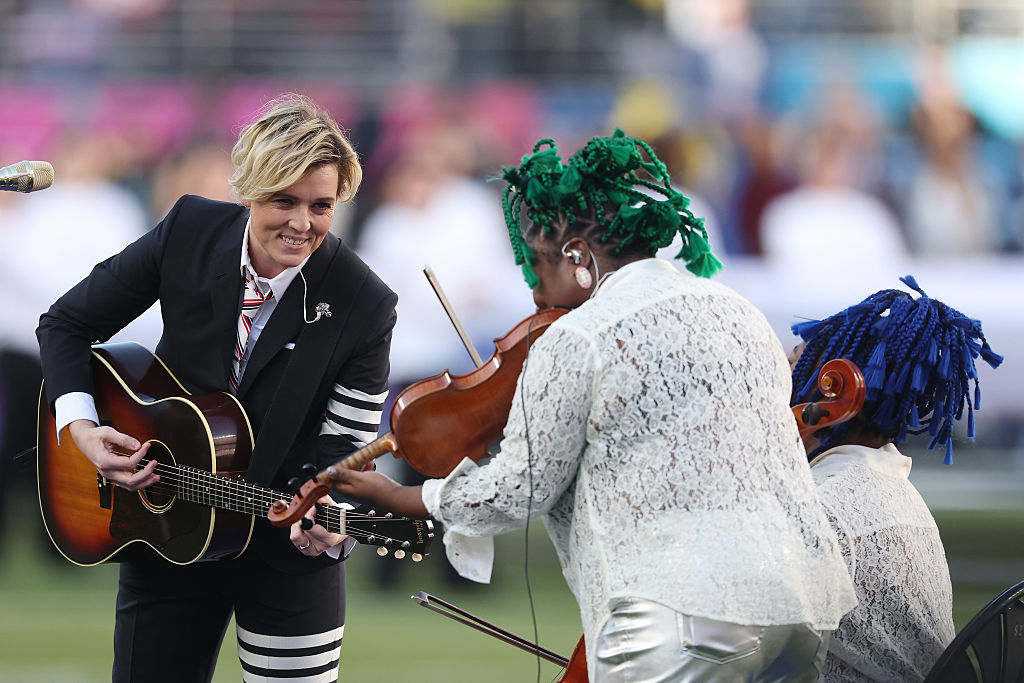The Complicated Reality Of Being Out & Queer In Hong Kong

“You might be surprised by how fast things can change in this part of the world.”
On a balmy Hong Kong night in mid-July 2015, I found myself at Club 18. The place was deserted when I arrived, but the throbbing techno told me I was in the right place. I was there for a lesbian and gay women’s happy hour hosted by the social group, Les Peches. Only around 14 women had RSVP’d on Les Peches’ Facebook page, so I didn’t quite know what to expect when I arrived. I perched myself on a high table near the bar and nursed a Whiskey Sour while women slowly trickled in.
I’d traveled to Hong Kong on a whim: Boston had just opened a direct flight to the territory, and as a freelance writer, this gave me the perfect excuse to combine my love of travel with a story angle. Hong Kong wasn’t exactly known for its progressive attitudes toward LGBTQ rights and visibility, but I’d read about Les Peches in my Lonely Planet pocket guide and was interested to see how a gay women’s group made space for itself in this changing city.
Wives Abby Lee and Betty Grisoni, who’d relocated to Hong Kong for Lee’s work, founded Les Peches in 2005 as a means to create a regular social event for gay and lesbian women. The happy hours are hosted in non-LGBTQ specific bars whose owners rent out their space for the evening.
I’d reached out to Grisoni before traveling to Hong Kong and had arranged to speak with her at the happy hour. However, this proved a tad hard to do over the techno-pop and the persistent chatter of the gradually-growing crowd.
“We were missing a place where women could meet,” Grisoni said (or rather, yelled) over her beer. “And people do want to meet.”
Such meeting could be a challenge in a place where few LGBTQ people are encouraged to be open and out. Hong Kong’s predominantly traditional attitudes toward gender roles and family, combined with an active political presence of anti-LGBTQ evangelical groups, make it difficult for gay, lesbian, and transgender people to express themselves openly, let alone connect to others.
Despite the low level of interest expressed on Facebook — never an indicator of turnout, Grisoni explained — Club 18 was jam-packed by 8 p.m. with laughing groups of women standing around tables and transforming the dance floor into additional space for conversation. A few couples marooned themselves in booths and kissed. Aside from the cigarette smoke and distinct lack of dancing, I could have been at any gay club in the United States.
I trickled out sometime around 8:30, feeling exhausted from both the smoke and jet lag. I never wrote the article I thought about pitching.
But recently, I’ve been thinking of that night in Club 18. This past June, Hong Kong’s Court of Final Appeals ruled in the case of Leung Chun Kwong v. the Secretary for the Civil Service that the government’s refusal to allow access to employment benefits for employees’ same-sex partners was discriminatory. The same ruling also paved the way for same-sex couples to file joint tax returns.
This ruling followed on the heels of QT v. the Director of Immigration, a 2018 case in which the same court ruled that the government had discriminated unlawfully against a British woman in a lesbian marriage by denying her dependent’s visa application. Both cases have effectively forced the government to recognize same-sex marriages performed abroad in countries where such are legal.
A lot has happened for gay rights in Hong Kong since my visit four years ago. While the rulings aren’t quite the victory for LGBTQ rights as Taiwan’s legalization of gay marriage, they are still decisive turning points toward equality and possible harbingers for things to come.
“These events help make people more aware of LGBTQ issues and people,” Sabrina Yang, Director of Sports for the 2022 Hong Kong Gay Games, tells GO.
But with the Hong Kong government’s slow response to equal rights and frequent attempts to thwart them, awareness comes from the slow and steady progress made by those in the LGBTQ community who are working for social change by making themselves visible.
The Challenges of Being Gay in Asia’s “World City”
The territory of Hong Kong is built on oppositions. It branded itself as “Asia’s world city” due to its vibrant and dynamic urban center, but its adherence to traditional values has left it behind the times in changing world dynamics. Because it is semi-autonomous from China but has a government that drifts pro-Beijing, a large portion of its citizens feel there is a lack of democratic measures in place. This is the contradiction at the heart of the current protests.
The government is not only resistant to LGBTQ rights, but it is often in open opposition to them. Homosexuality is against traditional Chinese values, according to the general argument. It’s also in opposition to Hong Kong’s mini-constitution, known as the Basic Law. Among the document’s multiple articles is one that explicitly references the protection of marriage, which states “the freedom of marriage of Hong Kong residents and their right to raise a family freely shall be protected by law.” Although marriage isn’t defined, the assumed interpretation is that the article refers to heterosexual marriage. This interpretation has been the foundation of the government’s argument against granting same-sex benefits and visa rights in both the Leung and QT cases.
Neither QT nor Leung challenged the common interpretation of the Basic Law. However, in 2018, a judicial review was filed by a woman known as MK who argued that the government’s refusal to legalize gay marriage and civil unions violated her rights to equality and privacy, which are also guaranteed under the Basic Law. It’s the first direct challenge for marriage rights in Hong Kong, but it’s only in the early stages of the court system.
The influence of Evangelical churches is another factor stalling LGBTQ efforts. Such churches have become increasingly popular throughout Hong Kong since the 1997 handover, and although in the minority, they are politically influential. In 2011, the government’s Social Welfare Department came under fire for hiring a gay conversion specialist associated with a Christian ministry to lead a workshop preparing employees to work with LGBTQ youth. Two years later, a massive protest and vocal opposition from church groups stalled early attempts to generate anti-discrimination legislation.
But perhaps their most influential act is the spreading of misinformation about the dangers of “homosexual culture,” which can be damaging to both LGBTQ and non-LGBTQ parishioners. Pearl Wong, a Christian bisexual and director of the Queer Theology Academy, has experienced the rejection LGBTQ Christians face in their home churches firsthand.
“Many of these churches claim their love for LGBTQI+ Christians, and yet insist that they must be converted before they deserve the same rights and equal treatment as heterosexual Christians,” Wong tells GO.
Ironically, she says, that while the government and Evangelical churches argue homosexuality is against both Christian and Chinese values, evidence suggests that the values of Hong Kongers are shifting in favor of acceptance. A recent study from Hong Kong University’s Center for Comparative and Public Law (CCPL) found that a majority of Hong Kongers surveyed were in favor of granting LGBTQ couples and individuals greater freedoms. 73% said that same-sex couples should have access to certain rights that heterosexual couples have, such as hospital visitations and inheritance. 69% said that Hong Kong should have anti-discrimination laws protecting LGBTQ. Both numbers were up from a similar survey conducted in 2013.
However, the biggest jump came in the number of respondents who were in favor of same-sex marriage (from 38% in 2013 to 50.4% in 2017). The authors of the study concluded that the “pattern of change comports with the majoritarian global pattern of global acceptance.” They also discovered that the government’s argument for protecting the current definition of marriage is erroneous.
The change, Wong tells GO, means that “LGBTQI+ people feel more comfortable and safe to come out in the workplace and universities,” although she notes that discrimination and bullying do persist in churches, schools, and among government officials.
Corporations in Hong Kong have long been allies for the LGBTQ community, in part because discriminatory policies hurt their bids to attract top talent from around the world. But the top ten inclusive Hong Kong corporations as ranked by the LGBTQ Inclusion Index are all multinational corporations. These are the same companies that are most likely to sponsor events like the LGBTQ carnival, Pink Dot, and Pride. Local businesses, without the same international pool to draw from, tend to be less inclusive.
“Most of the gay women I know, especially those who have a more feminine appearance, choose not to come out in the workplace because they are not sure if their peers will judge them,” Yang tells GO. “This is especially true if the workplace has no diversity or inclusion programs in place.”
But despite continuing resistance, things are improving for the LGBTQ community in Hong Kong. While the government might be slow on the uptake, the overall trend is toward greater acceptance. This is due largely to the grassroots efforts of groups and individuals.
“If Not Me, Then Who Else?”
For Hong Kong advocates, raising awareness involves two key steps: making the LGBTQ community known and developing social spaces for the community to come together. It’s a campaign designed to win hearts and minds.
Benita Chick, an LGBTQ activist, freelance radio host, and educator, is involved on both fronts. In 2016, she started LGBT in the City, a gay walking tour of Hong Kong — the first of its kind in Asia.
“I have always been bothered by the fact that gender identity and sexual orientation are not topics publicly discussed in Hong Kong,” she writes in the online publication NuVoices.
After a breakup with a girlfriend who feared her parents would learn about the relationship, Chick writes, she “felt the urge to help the community by raising awareness, and I wanted to make more people receptive to the LGBTQ+ life.”
Aside from academics, few people in Hong Kong really know about the gay history of the territory, Chick explained to me in a Skype interview. Unlike other cities, Hong Kong has no obvious “gay” district, and its various sites — often unknown — are scattered throughout the city. The tour takes attendees through current legal victories and to little-known gay bars, back streets, and saunas used for cruising.
“There are so many things to digest,” she tells GO, noting that people — both tourists and locals — want to know more about Hong Kong’s gay histories.
But while LGBTQ Hong Kong is becoming more visible, there are still differences in how gay men and women handle their shared communal space. The more overt “scene” is still geared toward gay men; there are only three lesbian bars compared to the more than 20 that lean male. Grisoni and Lee are still going strong with Les Peches, but they’ve also been joined by LEZO, a new social group that organizes regular gatherings for gay and lesbian women. Many gay women’s groups online are associated with women-based NGOs, however, meaning their social media forums are closed to non-members.
Chick tells GO that the popularity of groups like LEZO and Les Peches are signs that lesbians do want a designated space to meet, although there aren’t currently any sites that act as a centralized meeting space. In addition to curating the walking tour, she also co-directs Sweatitude, a women-based sporting group on Facebook that connects gay women looking to meet outside of the bar scene.
Sporting events offer venues for displays of diversity which go a long way toward normalizing the LGBTQ community. Following the Leung ruling in June, Hong Kong’s annual dragon boat festival featured a rainbow-clad team from the law firm Morrison and Foerster in celebration of Pride month.
Hong Kong also became the first Asian location to host the Gay Games in 2022, despite not having official marriage equality or any anti-discrimination laws.
“The goal of the Gay Games is to educate people through sports and to win the hearts and minds of the people,” Yang tells GO. “Bringing the Games for the first time to Asia will be an opportunity to include participants who have never been able to attend an LGBTQ+ event that’s bigger than themselves.”
She acknowledges that women’s participation in past games has been lower than men’s, and her team is currently doing outreach to attract more women, youth, and transgender individuals. She also knows that organizing such a huge event means that she will have to come out fully in her own life and social media. Although initially concerned, she decided it was what needed to be done.
“If not me, then who else?” she tells GO. “I am a gay woman who cares about LGBTQ+ rights and their development in Asia. If I am unwilling to represent people like me, who else will?”
On the religious front, LGBTQ activists are carving out space within Hong Kong’s Christian community. After 2013 protests by right-wing church groups against anti-discrimination legislation, 11 pro-equality ministries formed the Covenant of the Rainbow, a collective ministry that promotes a safe and positive worship space for LGBTQ Christians and others. The covenant was founded as a counterpoint to conservative religious voices, offering a different perspective on Christianity’s views of homosexuality and queer identity.
Pearl Wong, who serves as a deputy convener for the coalition, tells GO that there’s a need for such space since, like her, “LGBTQI+ Christians felt rejected and marginalized by their own churches.” Rainbow’s mission, she says, is “to affirm all lives and uphold equality for all people regardless of their race, gender, language, occupation, sexual orientation, gender identity, and gender expressions, or level of abilities.”
Like Wong, many of Rainbow’s ministers faced discrimination from their own churches after coming out. The group works closely with other advocacy groups like Pride and Amnesty International in order to advocate for LGBTQ rights (Wong is also a director for Pink Dot HK). They also work against the misinformation spread by the conservative churches in order to present a more accurate representation of the LGBTQ community for all parishioners. This past June, Joe Pang, a pastor with Rainbow’s ministries, led the first worship service at Hong Kong’s Pride.
“All the voices [against LGBT people], they come from religion, they come from the Christian religion,” Pang told the South China Morning Post. “We are the gay Christians, we know how to respond to them. … That’s why we need to be here.”
For her part, Wong tells GO she is hopeful that visibility will push Hong Kong’s government in the right direction. The CCPL report, in particular, is a sign that the government “should decide how to take this receptiveness forward to create a friendly environment for LGBTQI+ people.”
“By taking steps to introduce comprehensive anti-discrimination legislation on the grounds of sexual orientation, gender identity, and intersex status, there is the opportunity for Hong Kong to become the leading jurisdiction on LGBTQI+ equality in Asia,” Wong tells GO.
The role would be fitting for “Asia’s world city,” but Chick tells GO she isn’t as confident that the Hong Kong government will change. More likely, if gay marriage is legalized, she thinks it will come through the court system.
While the legal system did recently hand-down some favorable rulings, they haven’t always sided with LGBTQ applicants. An initial ruling in the lower courts went against QT on the grounds that her case was a backdoor to legalizing gay marriage. In February of this year, the High Court (which is one step below the Court of Final Appeals), struck down the case of three transgender men who wanted official recognition as males without gender reassignment surgery; current law allows transgender individuals to identify as such only after surgery, which the three applicants argued was akin to forced sterilization.
With MK v. Government of Hong Kong Special Administrative Region (HKSAR), much is riding on the court’s decision. Some activists fear the case for marriage rights is too ambitious. Michael Vidler, the lawyer representing QT’s successful challenge, told the South China Morning Post last year that LGBTQ rights were better advanced in Hong Kong through more incremental steps. He expressed concern that failure in the case could set back LGBTQ rights in Hong Kong for years.
However, two more applicants — both Hong Kong residents — have mounted similar challenges to the government’s ban on same-sex marriage. These cases are pending until an initial ruling in the High Court is granted for MK.
Hong Kong Must Keep Pushing Forward
Hong Kong’s LGBTQ community is tired of waiting. They’ve been steadily making steps toward inclusivity, with setbacks followed by more steps forward. They’ve been generating awareness of gay histories and lives, fighting for their rights in the legal system, and carving out spaces where they can be who they are without fear of reprisal. And in spite of government opposition, they appear to be winning the hearts and minds of the rest of Hong Kong too.
It’s not just the “activists,” either. For her part, Yang is hopeful that events like the Gay Games will help local people and organizations become more aware of the LGBTQ community and more receptive to their rights. If so, and even with a slow start, change is likely to follow.
“You might be surprised by how fast things can change in this part of the world even when we have a low starting point,” she tells GO.
I can now see what she means. I’d witnessed a starting point back on that balmy night in 2015, in a dance club filled with women who, if not all out officially, had at least come out long enough to claim a place for themselves in the city they called home. They’d trickled slowly but persistently into the smoke-filled bar until it was so packed that you couldn’t imagine it ever empty.












